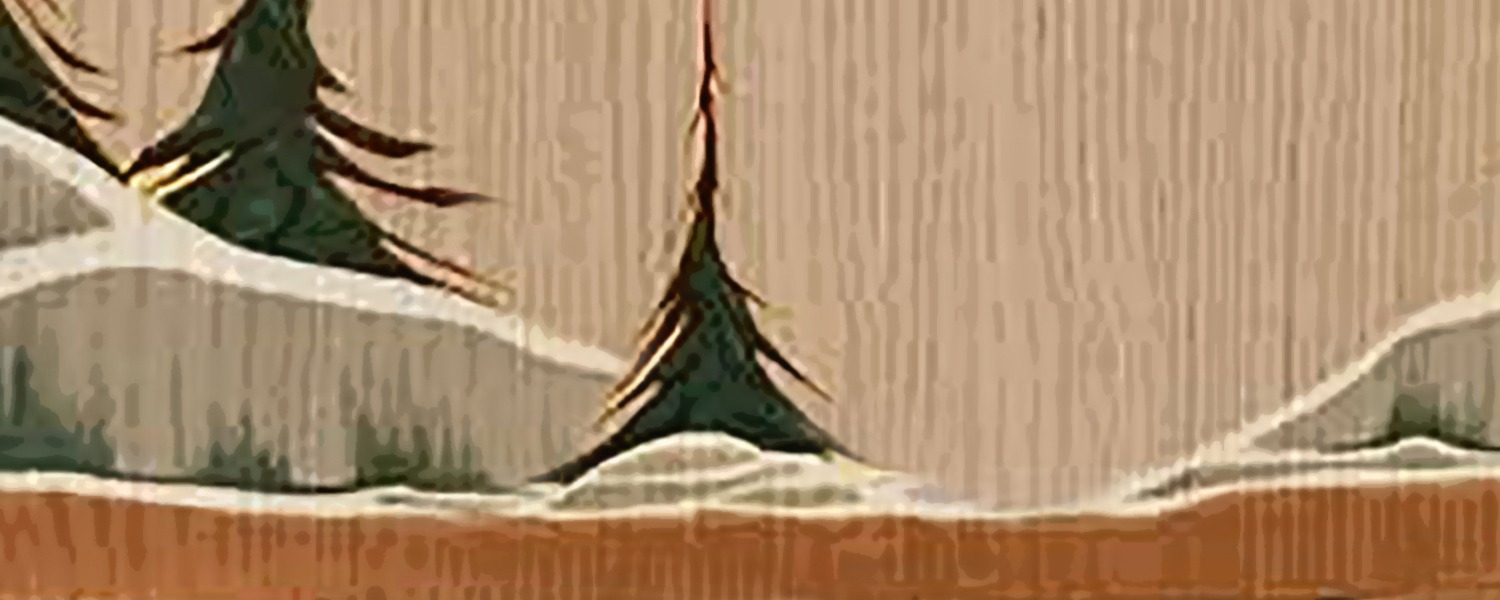Cet article est uniquement disponible en anglais.
On June 8, 2017, the honourable Robert Falcon-Ouellette spoke to the House of Commons in his official language, Nehiyaw. No issue was raised regarding the use of the Cree language, but his fellow parliamentarians could not understand him. Although the honourable member requested interpretation services 48 hours in advance, none was provided. Simply put, the House of Commons claims to have not had the capacity to interpret and, in an official ruling from the Speaker, denied Falcon-Oullette the right to have his comments translated. Canada, after all, only officially speaks two languages on Turtle Island.
Meanwhile, a proposed Indigenous Languages Act is anticipated to come before the House. The government committed to introduce a new Act before the next election, but it awaits introduction and Indigenous consultation. In the meantime, Indigenous speaking Members of Parliament must leave their language at the door, as though it were foreign to the land the House of Commons is built on.
Perhaps unintentionally, or perhaps by form of habit, the House of Commons has stumbled into a confrontation over political and legal rights. An argument can be made that without interpretation, Indigenous speaking members do not remain free from obstruction, interference, intimidation, or molestation in performing their civil duties (as is required by the House of Commons Rules on Procedure and Practice) [1]. What could be more obstructing, or more of an interference on parliamentary duties, than being denied the ability to communicate?
Maintaining the locks on Indigenous tongues is an act of moral irresponsibility. It is irresponsible to the 2008 apology to residential school survivors, the tremendous work of the 1996 Royal Commission on Aboriginal People, the recent Truth and Reconciliation Commission, and the adoption of the United Nations Declaration on the Rights of Indigenous Peoples. Furthermore, inaction forgoes sincerity in the proposed efforts to protect and promote Indigenous languages and culture as proposed by the former Aboriginal Languages Act and, its proposed successor, the Indigenous Languages Act.
Cree remains one of the most common Indigenous languages spoken on this continent, to this day. How is it that this Indigenous language has yet to be understood by settler society? How is it that, in the era of reconciliation, recognition of Indigenous language rights is still so set apart from the Canadian context? Reconciliation is required to step out from the 1580 Elizabethan design of Parliament, and develop new processes that open spaces for Indigenous Peoples and their languages.
Indigenous Lands under an English and French Speaking Country
When Cabot landed on the shores of this land, the inhabitants did not speak English or French. In fact, it was a practice for Jesuits, missionaries, traders, and others to learn the first languages of the land: to learn Cree, Anishnaabe, Iroquois, etc. It made sense to respect and develop working relationships with the original inhabitants. Indigenous Peoples knew – as they do now – the climate, horticulture, migration patterns, and medicines of this land. A relationship existed that, through perceptions of superiority, has deteriorated from congeniality into one of exclusion.
The need to understand Indigenous languages was evident at the time of treaty negotiations. Communication was necessary to establish peaceful coexistence. The need to understand each other was essential in forging this new country. There was one dish, one spoon from which our societies shared; two rows to walk along side-by-side.
Then along came the policies of assimilation and erasure, which began to govern Indigenous lives and livelihoods. Unilateral policies and legislation were imposed that undid the nation-to-nation relationship, forcing Indigenous Peoples, instead, into a Crown-ward relationship.
Then came the residential schools, a home far from home for young children, leaving communities void of their laughter, joy, and purpose. These were “homes” where destruction of Indigenous culture was intended enthusiastically and where (in the words of our first Prime Minister, John A. Macdonald) the goal was to take the Indian out of the child.
Then came a resurgence – a battle, really – in the face of determined ignorance, to buttress Indigenous culture and languages. But Indigenous Peoples were still not acknowledged as participating founding members of this land, or afforded the privilege that comes with acknowledgement of their societies’ contributions to the development and establishment of this country. They were purposefully excluded from institutions of governance and education, while overpopulating institutions of criminal justice and child welfare.
Since time immemorial, Indigenous Peoples have known their languages to be the only official language. Through Indigenous languages, they learn to trap, hunt, track, raise children, take on and live up to responsibilities, and practice ceremonies and songs. They learn their identity. The resiliency required to relearn a language the state once actively sought to destroy is itself laudable. For Canada’s part, though, the claim to protect and promote Indigenous languages doesn’t quite reach beyond empty words or tokenism.
Pass the Privilege
On June 12, 1995, Member of Parliament (and Inuit leader) Jack Awanak stood in the House of Commons and delivered a speech fully in Inuktitut, only to be shamed by another member for not speaking one of the two official languages. Because the other member could neither recognize nor understand the language, she questioned whether the House “must continue to listen”. Parliamentary privilege upholds the notion that only English and French are the official languages spoken within federal intuitions. Although other languages can be spoken and interpreted, they are not always interpreted simultaneously.
English and French interpretations are an equal opportunity language privilege not afforded to Indigenous Peoples. Privilege holds no equal opportunity where opportunities to encourage and support Indigenous languages are missed. In fact, speaking to the issue of Mr. Anawak’s use of Inuktitut, the then-acting speaker confirmed there was nothing in the standing orders that would prevent anyone from using a language not recognized as one of Canada’s two official languages.[2] Unfortunately, as was raised by Cree Member of Parliament Robert-Falcon Ouellette 20 years later, there is nothing to ensure they will be understood.
Twenty years later, the lack of capacity (some may say respect) to ensure Indigenous languages are understood in the House of Commons is as real as it was in 1995, 1958, or even 1867, mimicking the attitude of the residential schools that enforced the use of only English or French. Now, the onus is not only on the Cree speaking members to translate themselves but to raise the issue in advance with the Standing Committee on Procedure and House Affairs. However, as stated in the recent decision read by Speaker Regan, the Parliament’s technical and physical capacity for interpretation is limited. Nonetheless, advances in the Senate disprove the Speaker’s argument that “it is beyond the capacity” of the translation bureau to provide interpretation, as the Senate already translates documents into several main Indigenous languages. Indigenous parliamentarians are told, essentially, “Hold your breath while you hold your tongue: it might take another 500 years before Indigenous languages reach equitable status to settler nations languages again.”
ReconciliACTION
It takes more than words of commitment and rhetoric to repair the damage done to Indigenous Peoples and communities. As Senator Serge Joyal said after the second reading debate of Bill S-212,[3] An Act for the advancement of the aboriginal languages of Canada and to recognize and respect aboriginal language rights,[4] “Doing nothing would only result in further deterioration [of Indigenous languages].”
It has been 22 years since Jack Anawak introduced the idea that Indigenous languages belong in the House of Commons and compared their existence here for thousands of years to the few centuries’ old English or French language. Yet, nothing has been done to institutionalize Inuktitut (spoken by Jack Anawak) or Cree (spoken by Robert-Falcon Oulette), which are two of the oldest languages on this continent.
The Official Languages Act exclusively exempts Indigenous institutions from the requirement of printing and publishing in both official languages. The recognition that Indigenous Peoples have their own languages seems to end upon entering the doors of the House of Commons – as though Parliament intends to take the Indian out of the individual. Indigenous Peoples can speak their languages in the House of Commons, so that amount of fairness exists. They do not, however, have the privilege of being understood, at least not unless they translate or repeat themselves in one of Canada’s official languages.[5]
In 1996, The Royal Commission on Aboriginal People released volumes of materials and recommendations on rebuilding “the relationship.” Among those was the recommendation to “sustain Aboriginal identity and languages as a dimension of public life in Canada.”[6] This sentiment was echoed in the Truth and Reconciliation Commission (TRC) final report after years of being inarguably unaddressed.[7]
Now, the Canadian Prime Minister is heard making claims of commitment to rebuild those nation-to-nation relationships – claims made continuously from within the House of Commons. On December 6, 2016, the Prime Minister, before member Chiefs of the Assembly of First Nations, called the TRC the most important work ever done in this country, and committed to implementing each of its 94 calls to action.[8] Furthermore, to the applause of the Chiefs, the Prime Minister committed to Call to Action number 14 – to enact an Aboriginal Languages Act.
That was six months before the House of Commons refused a Cree interpreter for the Member of Parliament for Winnipeg Centre.
Indigenous language interpretation, according to the Speaker of the House, is a “capacity” issue. Does the House not know where to find Indigenous language speakers, or do they consider the languages as unworthy as their forefathers declared it to be?
Perhaps by “capacity” the House means it will cost money? This would almost be believable if not for the $1 million left unspent by Canadian Heritage’s Aboriginal Languages Initiative (ALI) and returned to general coffers in the past five years.[9] This would be believable, had the most recent federal budget not committed $55 million to Indigenous languages and cultures annually. Having the House of Commons apply for Indigenous language translators through the ALI would demonstrate a real effort to reconcile and encourage a resurgence of Indigenous languages, complementing efforts of those healing from intergenerational traumas. What is clear, however, is that no effort like this took place.
Protected Rights of Indigenous Languages
Section 35 (s.35)[10] of the Canadian Constitution is said to be a box of rights both recognized and protected under section 25[11] of the Canadian Charter of Rights and Freedoms. Unfortunately, there is no clearly defined understanding or agreement on what those rights are. Section 37 (stricken from the Part IV of the Constitution Act, 1982) required the federal government to consult with Aboriginal communities to specify the Aboriginal rights protected within the Charter under s.35. Section 37 was struck from the Charter and the result has been ongoing and expensive court visits to justly define s.35.
If s.35 rights are still unclear or continually defined by non-Indigenous governments and their court systems, how will we ever understand each other in a way that will allow reconciliation to flourish? Absent any consultation on defining Aboriginal rights, perhaps the time is nigh for a s.35 Indigenous languages challenge.
Canadian courts have been filling in these gaps over the past 40 years, though struggling with the sui generis nature of Indigenous law. Aboriginal rights are commonly referred to as “customs, practices and traditions”, or anything that would make up the very “core of Indianness” (as stated by the Supreme Court of Canada in NIL/TU,O Child and Family Services Society v. B.C. Government and Service Employees’ Union) [12]. Language undoubtedly makes up the very core of Indianness, and exists well beyond the illusion of surrendered Aboriginal rights.
Nation-to-Nation
Rebuilding nation-to-nation relationships, without Indigenous languages being heard and understood, leaves the interpretation of “reconciliation” in the hands of those who claim power. It continues the process of colonization by forcing Indigenous Peoples to learn and speak either English or French in order to hold status. English and French interpreters were introduced into the House of Commons in the 1950s as a way of ensuring that members understand one another. Are we still a country that refuses to understand its other founding Nations?
There is now an opportunity to demonstrate that Indigenous Peoples belong, as we are, were, and will be, through new conventions or laws that uphold s.35 language rights. There is now an opportunity to establish equitable nation-to-nation relationships, as our numbered Treaties promise.
Canada inflicted deep wounds on the languages and cultures of Indigenous Peoples, and this “dark stain” has been widely admitted.[13] Once punished, shamed, and prevented from speaking Indigenous languages, we wonder when Canada will fully own the words of its various apologies with actions that heal, promote, and encourage Indigenous identity. These actions can be as simple as ensuring the provision of interpreters for our Indigenous language-speaking members of Parliament.
Âhkamêyimo kanêhiyawêyan◉* **
By Jason Mercredi
Posted on July 5, 2017 here: http://www.northernpublicaffairs.ca/index/reconciliation-is-an-english-word/
*The capacity to translate the above sentence is beyond the limitations of this article.
**Northern Public Affairs seeks to build partnerships to ensure our material can be presented in any of Canada’s official languages, including Nehiyaw.
Photo: Canada’s Parliament buildings viewed from Victoria Island in Ottawa. Credit: Meagan Wohlberg
[1] House of Commons Procedure and Practice, Second Edition, 2009, Rights and Immunities of Individual Members
[2] June 12, 1995, at page 13605 of Debates
[3] As reported here: https://www.theglobeandmail.com/news/national/trudeau-promises-aboriginal-language-bill-but-the-whole-system-needs-an-overhaul/article33444970/
[4] Aboriginal Languages of Canada Act
[5] Official Languages Act, R.S.C., 1985, c. 31 (4th Supp.) section 7(3)(b)
[6] RCAP 1996, VOLUME 5, Renewal: A Twenty-Year Commitment at p. 11
[7] Truth and Reconciliation Commission of Canada: Calls to Action CTA 14
[8] Prime Minister Justin Trudeau’s Speech to the Assembly of First Nations Special Chiefs Assembly
[9] Evaluation of the Aboriginal Languages Initiative 2009-10 to 2013-14, page 40
[10] The Constitution Act, 1982, Part II, Rights of the Aboriginal Peoples of Canada, Schedule B to the Canada Act 1982 (UK), 1982, c 11
[11] Canadian Charter of Rights and Freedoms, s 25, Part I of the Constitution Act, 1982, being Schedule B to theCanada Act 1982 (UK), 1982, c 11
[12] NIL/TU,O Child and Family Services Society v. B.C. Government and Service Employees’ Union, 2010 SCC 45, [2010] 2 SCR 696 p.698: Per McLachlin C.J. and Binnie and Fish JJ.: The central question in this case is whether the operation falls within the protected “core of Indianness” under s. 91(24) , defined as matters that go to the status and rights of Indians.
Related Posts

CVR@1 : Le Système de justice pénale canadien demeure un obstacle à la réconciliation
Plus d’un an s’est écoulé depuis la publication du sommaire exécutif et des appels à l'action de la Commission de vérité et réconciliation (CVR). Parmi les 94 appels à l'action…
La suite...
TRC@1: The Power of Sport
Cet article est uniquement disponible en anglais.
I am a proud Maliseet. I grew up on the Tobique First Nation, a beautiful community located on the St. John River in…
La suite...
TRC@1: Ontario takes good first step toward better treaty relationships, but more required
Cet article est uniquement disponible en anglais.
On May 30, 2016, Ontario released The Journey Together which sets out Ontario’s “Commitment to Reconciliation with Indigenous Peoples.” It…
La suite...
